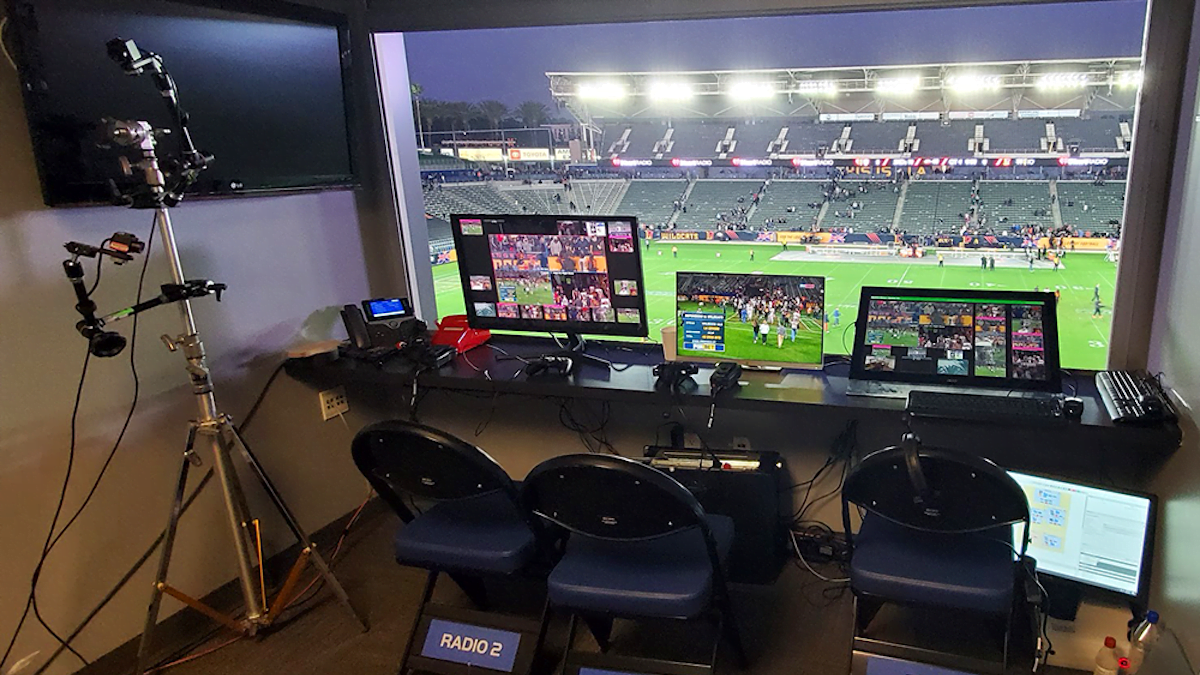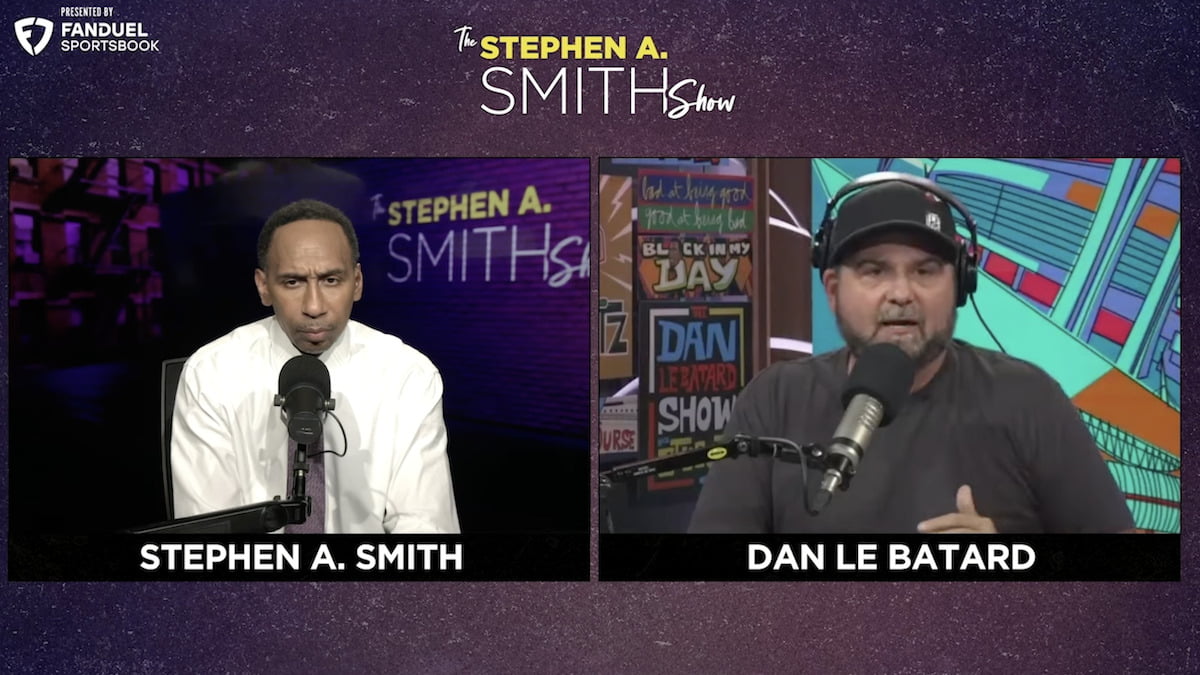No two analysts are quite the same. Some may sound alike. A few are loved and a few are not. In the sports media business, analysts will be needed by the play-by-play announcer and studio host. While these individuals may have the same title, their job descriptions are much different. The information may be close to the same, the way its presented is vastly different.
It got me thinking as we start this NFL season. What exactly are the roles in the booth and the studio? What exactly are the responsibilities for the analyst in each of these positions? Let’s start in the broadcast booth first.
In an NFL broadcast perch, the relationship on air between the play-by-player and the analyst is vital for a broadcast’s success. This pretty much is a blanket statement across all the major pro sports as well as college hoops and football. A mutual respect for each other’s job is critically important and the best booths across the country have that going for them. You don’t have to be best friends, but when it comes time to go on the air, you need to at least, get along.
So, what exactly does the announcer need from his analyst in the booth?
First and foremost, he/she needs someone that does their homework. There’s nothing worse than an unprepared analyst, or broadcaster for that matter. Play-by-play is tough enough without having to carry the analyst in the booth as well. There are certain things within the framework of a broadcast, be it on radio or television, that scream for the former player or coach’s point of view. It has more credibility, especially if it’s an “I played the game” moment. If you aren’t prepared in the booth, you will get exposed and you’ll anger your play-by-play partner.
Building off of that, a knowledge of the game is equally important. This is the thing that rookie analysts cling to, because it’s what they know, lived and breathed for however long they played. In order to take the viewer/listener ‘inside’ the game, you have to know it. If the play-by-play announcer asks about what a team should do in a situation, the analyst should be ready to answer at a moment’s notice. It should be the analyst’s strong suit, the thing they do best, talk whatever sport it is they are covering.
A love of the game usually makes for better working conditions in a booth and is always appreciated by the play-by-play announcer. As I’ve written about guys like Fox’s Greg Olsen, you can just hear the passion in his voice and his personality shines through.
“I think the game is so fun and so interesting and complex and the better we can do as analysts in portraying that, I think it’s fun for the viewer to come away and learn a few things throughout the course of the game.” Olsen said on the Dave Pasch Podcast.
The analyst needs to be up on the rules of that sport, and not just the on-field things. The analyst should know the waiver, IR, practice squad and injury designations. Have a working understanding of these systems can help a play-by-play announcer a lot. Also understanding and knowing the history of the game they’re calling is a plus.
A sense of timing is helpful as well. An analyst that can figure out a feel for when he/she should jump in usually makes for a better broadcast. Being able to make a point quickly and concisely shows the value the analyst can bring to the overall game.
All a play-by-play announcer can ask, is that the color commentator, be a good listener. There’s nothing worse than saying something that gets repeated back to you moments later, because the analyst wasn’t paying attention. This goes both ways of course.
A mutual respect and just being a good partner means the world to the play-by-play person. Nobody is perfect and to feel like your analyst has your back, and vice versa, is a great feeling to have going into a broadcast.
While those analysts in the booth are a little more limited on time, the studio folks have more of an opportunity to, well, analyze. During pregame, halftime and postgame shows, the chance to really break down plays is there for the taking. The hosts enjoy the opportunity to watch the former players and coaches analyze critical moments in games. It usually leads to conversation and at times, disagreements, which seem to make great television.
Hosts appreciate analysts that can show a little personality from time to time. Introducing big personalities to studio shows is the way of the sports world these days. Recently retired players are getting into the act, including JJ Watt, who never dreamed this would be where his career would take him.
“I always said early in my career I didn’t want to be an analyst,” Watt told the Houston Chronicle’s Greg Rajan. “I said, ‘Those guys don’t know what they’re talking about.’ They always rip on players when they don’t know their assignments. They always talk bad about us. I said, ‘I don’t want to do that.’ But now, leaving the game, I realize how much I love it and how much I can’t stand to not be around it. This is the perfect opportunity.”
Watt is going to be a host’s dream come true, combining that personality, with confidence of having played the game at a high level to equal good analysis and banter. Good studio hosts realize why most fans are tuning in. They want to hear the back-and-forth between the former players and coaches. So, the host loves it when he/she can lead the group into a subject and let them run with it.
Just like in the booth, it’s obvious that the studio analysts need to be prepared and have a working knowledge of the sport they cover. That would be ideal for the host, to be able to rely on that knowledge. Let’s be honest, some of the former NFL’ers aren’t prepping for studio work like they would be for a Sunday game. But they can sometimes get by on personality and their ability to entertain and offer opinions, wild, or otherwise.
It always comes down to making sure each person is doing his/her job. Each broadcaster needs to have an understanding of the other’s job and role in the telecast. Remember, whether it be a two-person booth, or a 4-person studio show, everyone needs to be pulling on the same end of the rope. It takes a team effort to pull off a successful show.
Andy Masur is a columnist for BSM and works for WGN Radio as an anchor and play-by-play announcer. He also teaches broadcasting at the Illinois Media School. During his career he has called games for the Chicago Cubs, San Diego Padres and Chicago White Sox. He can be found on Twitter @Andy_Masur1 or you can reach him by email at Andy@Andy-Masur.com.








